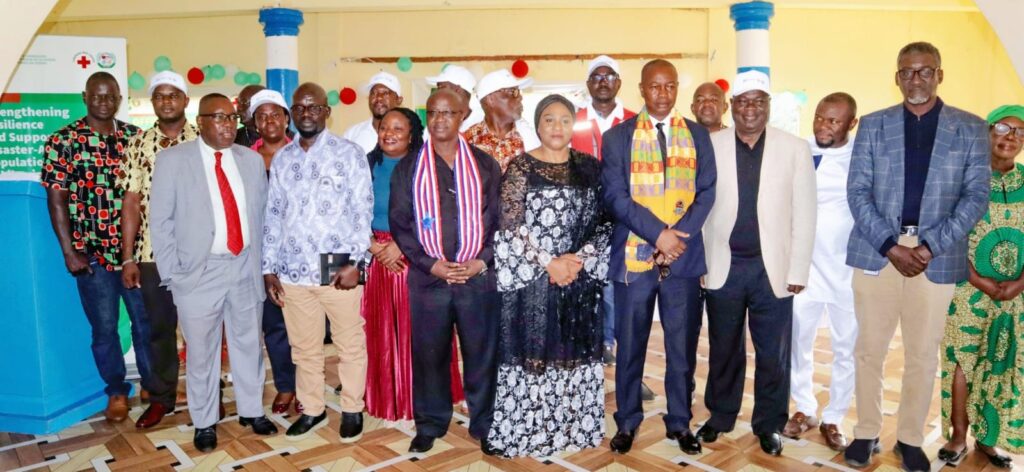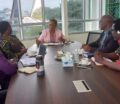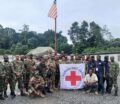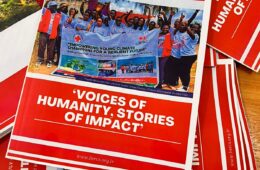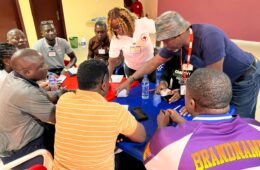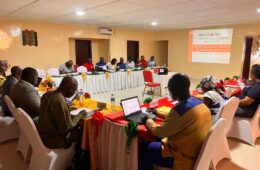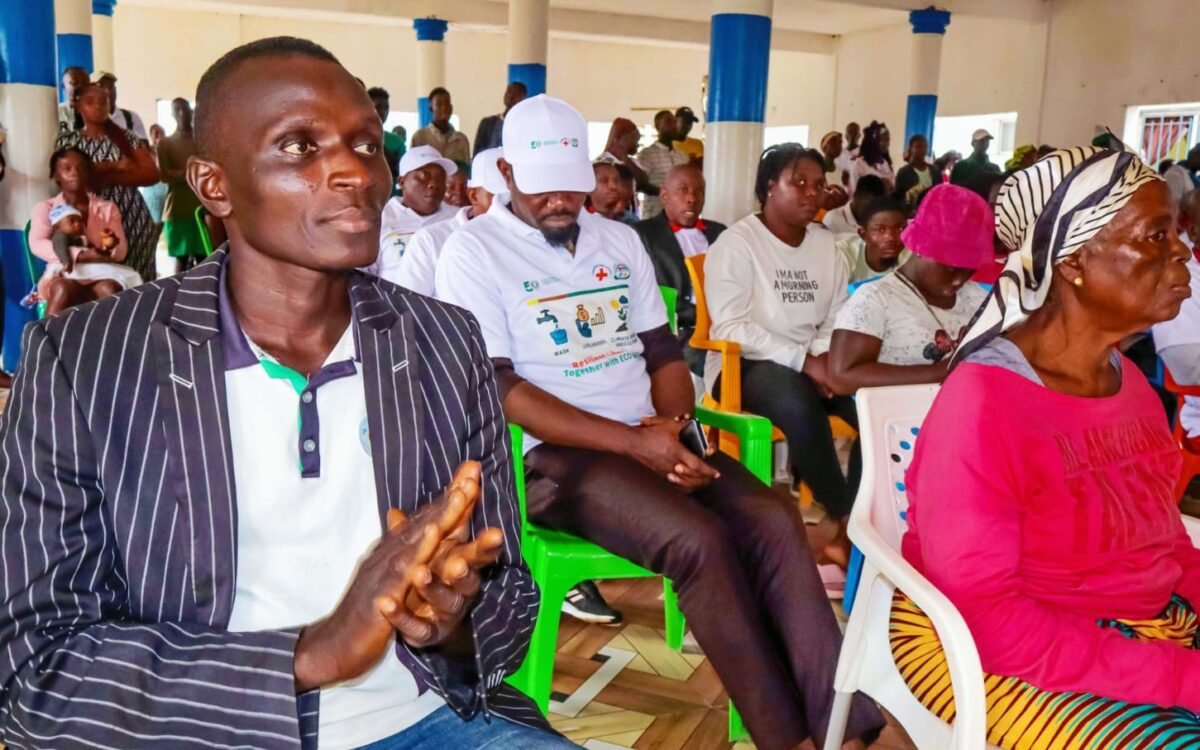 September 11, 2025
September 11, 2025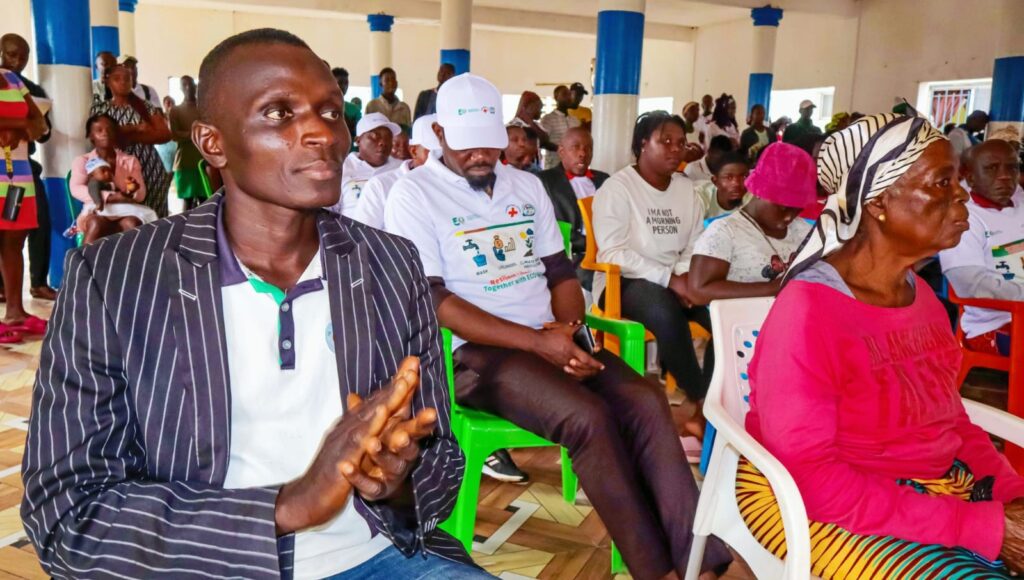
The Economic Community of West African States (ECOWAS), in partnership with the National Disaster Management Agency (NDMA) and the Liberia National Red Cross Society (LNRCS), has officially launched a solidarity humanitarian project titled: “Strengthening Resilience and Supporting Disaster-Affected Populations in Liberia.”
With a funding support of over $725,000 USD, the ECOWAS-funded project will directly assist more than 1,820 families impacted by devastating floods across Montserrado, Lofa, Bong, and Grand Cape Mount Counties in 2024. This timely intervention combines emergency relief, livelihood support, and climate-smart solutions to help rebuild lives, restore dignity, and strengthen long-term community resilience.
During the official launch of the project, ECOWAS Ambassador to Liberia, H.E. Josephine Nkrumah, handed the project to NDMA, which in turn designated the Liberia National Red Cross Society as a trusted implementing partner.
“This project is not just a symbol of support—it’s a declaration of solidarity,” said Ambassador Nkrumah.
“ECOWAS stands with the people of Liberia—not just in words, but in meaningful action. When disaster strikes, we must rise together. This project is about restoring livelihoods, restoring dignity, and reminding families that they are not forgotten”.
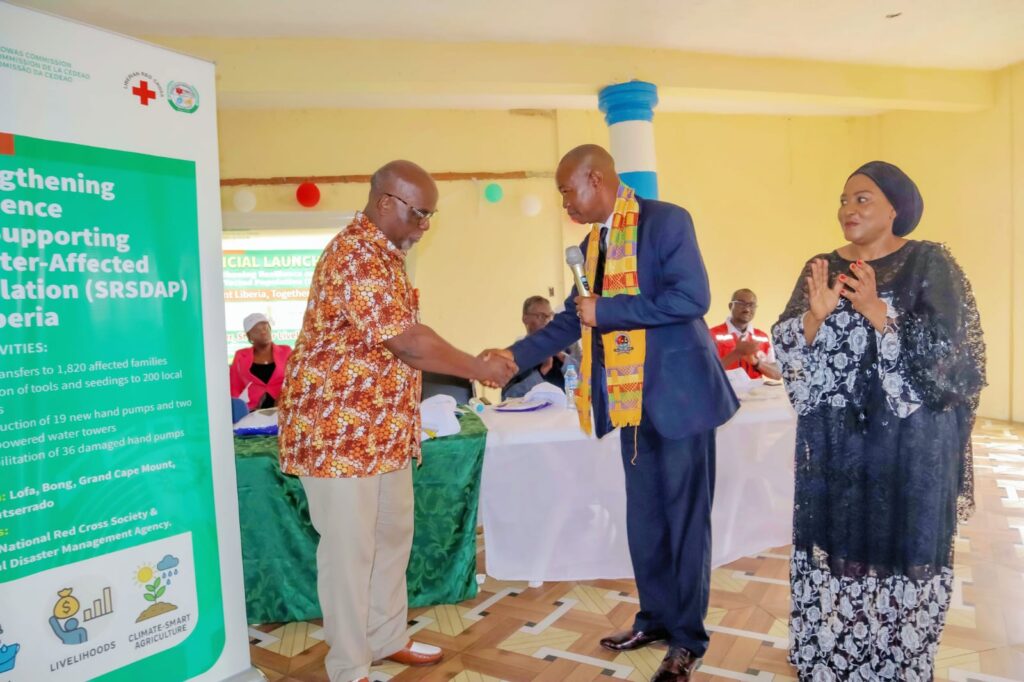
The project includes unconditional cash transfers to 1,820 disaster-affected families to support recovery through small-scale economic activities, promoting independence and sustainable livelihoods. It also incorporates a strong agricultural recovery component by providing training, seeds, and tools to 200 local farmers, empowering them to increase productivity and food security in their communities.
Additionally, the project will address urgent water, sanitation, and hygiene needs by constructing 19 new hand pumps, installing 2 solar-powered water towers, and rehabilitating 36 damaged hand pumps in flood-affected areas.
In his remark, Mr. Gregory T. Blamoh, Secretary General of the Liberia National Red Cross Society, reaffirmed the Liberian Red Cross’ commitment to serving with integrity and inclusivity: “Today is more than a launch—it’s a turning point for thousands of families who have endured loss and uncertainty,” he said.
“This project is not just about infrastructure or assistance—it’s about restoring life, dignity, and hope. We are deeply honored to be entrusted by ECOWAS and NDMA to lead this implementation. We will ensure every voice is heard, every need is met, and every community is empowered. Together, we are proving that when humanitarian actors unite, we can do more than respond—we can rebuild.”
In an emotional moment at the event, a community elder from Grand Cape Mount County, expressed her appreciation: “When the floods came, we lost everything—our farms, our homes, even our faith in tomorrow. But today, I feel seen. I feel heard. This project brings us not only clean water and support, but a renewed belief that we are not alone. On behalf of all the mothers and fathers in our community, thank you for remembering us and walking with us.”
The Liberia National Red Cross Society emphasized that the project will prioritize community ownership, transparency, and inclusive targeting. With the full participation of local leaders and volunteers, the project aims to ensure that assistance reaches the most vulnerable—women, children, persons with disabilities, and elderly residents.
